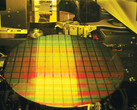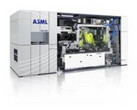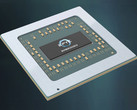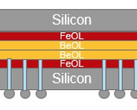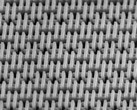Earlier today GlobalFoundries announced a major shift in its plans and said it would not longer be pursuing the 7nm, and would instead be focusing on enhancing its already existing 14 and 12nm nodes. This sudden cancellation will affect GlobalFoundries' clients AMD and IBM, and existing contracts will have to be renegotiated (such as the infamous Wafer Share Agreement with AMD) to account for the cancellation of a process many expected to be of vital interest to the fabbing company.
Gary Patton, CTO of GlobalFoundries, in an interview with Anandtech said the cancellation of the new process was not due to "technical issues." Although GlobalFoundries was set to start producing 7nm chips later this year, the company made a radical change to its strategy and just a few weeks ago opted to instead focus on its already existing processes and refine them. GlobalFoundries does not see the point in developing "bleeding edge" processes that might not be used quickly enough. As it becomes more and more expensive to develop new processes and make chips under newer processes, several foundries have fallen behind or dropped out of the market entirely, especially within the past few years.
Although GlobalFoundries' sales have increased since 2012 by 50%, the company still makes losses on its products. Furthermore, GlobalFoundries did not plan 7nm for high volume, so that seems to have also factored into the decision on cancelling 7nm. As a cost saving measure, GlobalFoundries has chosen to focus on 14 and 12nm, which are somewhat competitive today, and adapt them for all segments of the market: high end performance, compact size, and low power usage. GlobalFoundries' 14nm node was previously used for several AMD architectures, including Polaris, Vega, and Zen, while 12nm was first used for Zen+.
AMD will now be using TSMC's 7nm node for its future 7nm CPUs and GPUs. Now that GlobalFoundries cannot provide AMD silicon of this quality, the company has no choice but to choose TSMC. AMD already announced that Rome and Vega would be fabbed at TSCM, but it is now clear that AMD will be fabbing everything they have for 7nm at TSMC. Any products that AMD planned to fab at GlobalFoundries will now be fabbed at TSMC.


 Deutsch
Deutsch English
English Español
Español Français
Français Italiano
Italiano Nederlands
Nederlands Polski
Polski Português
Português Русский
Русский Türkçe
Türkçe Svenska
Svenska Chinese
Chinese Magyar
Magyar


